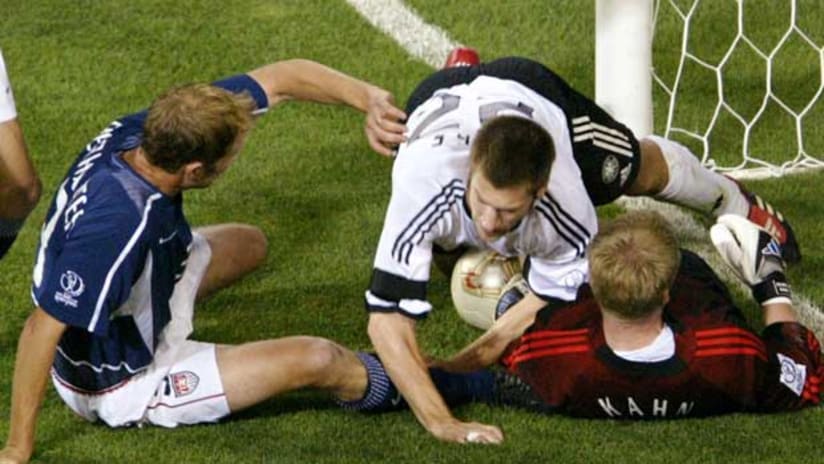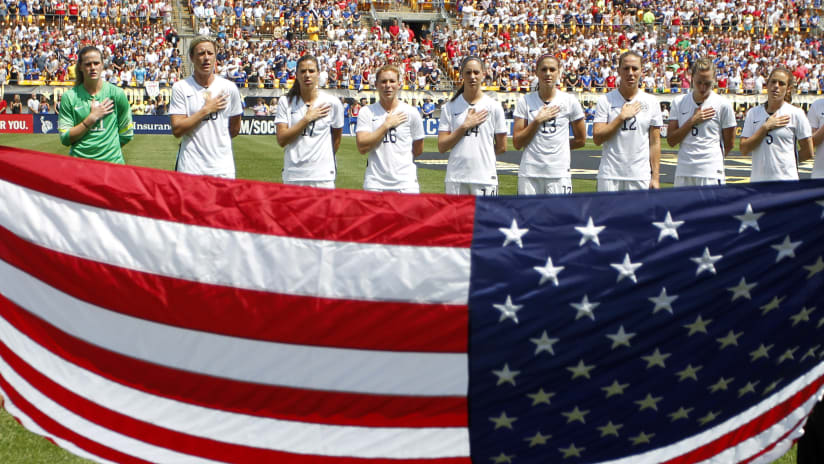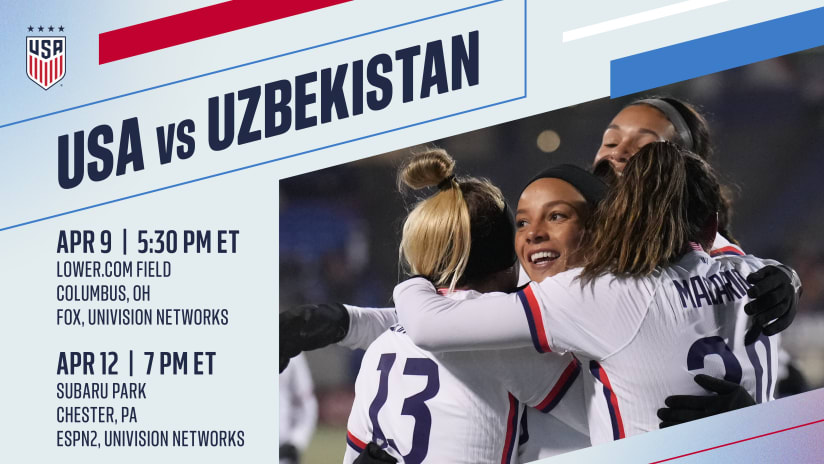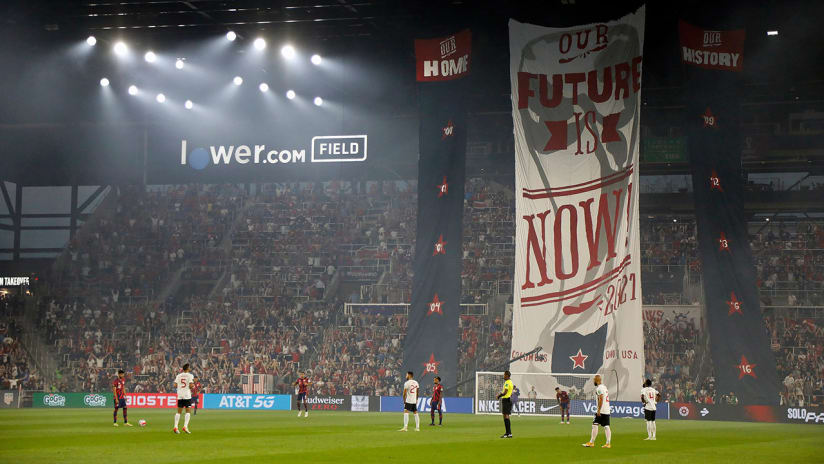As it was twelve years ago in South Korea-Japan, an underdog U.S. Men’s National Team heads into its final match in the Group Stage of the 2014 FIFA World Cup with four points. Similar to the 2002 tournament, the U.S. could rely on goal differential should it falter against Germanym just as it did Poland in 2002. Portugal faces Ghana in the other match of the group with each nation looking to make up deficits in scoring difference and a win in the Group G table.
Thanks to South Korea’s 1-0 upset against Portugal in 2002, the USMNT moved on to the knockout round to a fateful meeting with archrival Mexico. The encounter would produce a “Dos a Cero” result, a scoreline typically reserved for Crew Stadium, on foreign soil as the Americans advanced to their first Quarterfinal since 1950 thanks to goals from Brian McBride and Landon Donovan.
“It was the World Cup,” recalls Crew Assistant Coach Josh Wolff, who played 59 minutes in the match. “We'd played [Mexico] in friendlies, the Gold Cup and qualifiers. All of those things lead up to the World Cup. At this point, we're facing our arch rival at the World Cup.They knew us, and we certainly knew them. It was a matter of making plays. That was a game that could've gone either way, but in the end we made plays that pushed us over the edge to get a result on the biggest stage in the world.
"That's what made it sweet.”
Just as it will on Thursday in its final group stage match, the U.S. met Germany in the 2002 Quarterfinal looking to prove it could compete with the world’s best. Ahead of the fixture that will likely decide the USMNT’s fate in the 2014 tournament, TheCrew.com looks back at the Americans’ 2002 battle with Die Mannschaft as part of its Black & Gold on Brazil content series.
*
With the taste victory over its regional nemesis still lingering, the USMNT turned its attention to three-time World Cup champion Germany. The Germans had steamrolled their way through group play, earning seven points and a plus-10 goal differential. The only blemish for Germany was a 1-1 draw with Ireland, while Die Mannschaft pummeled Saudi Arabia 8-0 in Group E.
But after shocking fifth-ranked Portugal in its opening match, earning a draw against host South Korea and knocking-out rival Mexico, nothing could diminish the Americans' spirit heading into the clash with Germany.
“Germany had a couple great games in that tournament,” says Crew Sporting Director and Head Coach Gregg Berhalter. “They scored a lot of goals against Saudi Arabia. They were doing pretty well. But we were confident. We were confident in our group, confident in the surroundings in Korea. We felt very much at home there and embraced by the people. We were confident going into that game.”
Adds Crew legend and Brand Ambassador Frankie Hejduk: “We tasted defeat [against Poland], then we came back to beat Mexico. The writing was on the wall. This team can come back, they can bounce back from defeat. They know how to score. Germany, what a great challenge and test that was going to be. We had nothing to lose. We were the team that was expected to get beat by the world.”
Despite the over 5,000-mile distance between the Asian continent and American soil, the USMNT could feel the passion and support building back home as the nation advanced through the tournament. From appearances on The Late Show with David Letterman to regular interviews on ESPN’s SportsCenter, members of the National Team had become overnight celebrities during the 2002 FIFA World Cup.
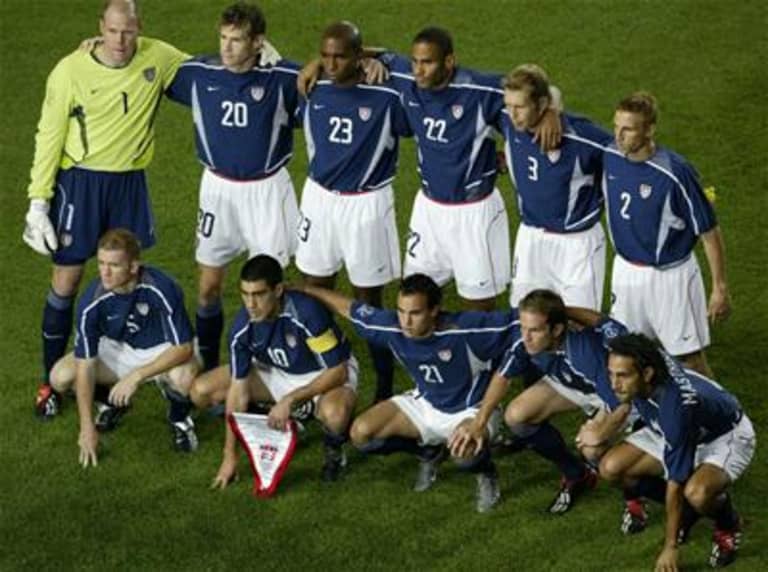
“It was tough then, we didn't have social media,” Wolff recalls. “We didn't have the ability to see what was going on behind us, but we could hear it. We would talk with friends and family still in America, and you could sense that it was gathering momentum and energy even though we weren't there.”
He goes on: “It's what our country is about. They get behind you, whether it's soccer or any other sport. When it's America being represented, it becomes very passionate.”
With the support of over 300 million Americans and having already exceeded expectations, nothing could deter the USMNT’s belief in knocking-off Germany in the Quarterfinal.
“We understood who we were playing against, just as we did against Portugal,” Wolff says. “You understand the opponent and the implications of where you are.
“The way we played, I don't think there was any indication of anybody having any fear of any team.”
Once again, USMNT Head Coach Bruce Arena tailored his gameplan and lineup specifically for the Germans just as he had done with every opponent during the tournament. With Hejduk returning to the fold after serving a one-match suspension due to yellow-card accumulation, Arena moved the charismatic Bayer Leverkusen man to the midfield against the Germans. In a switch of formation, Arena elected to go with a three-man backline of Berhalter, Eddie Pope and Tony Sanneh in his 3-5-2 scheme.
“Bruce switched the lineup again, went to a 3-5-2,” Hejduk says. “There was a plan behind every single game. We were as prepared as ever for every one of those games, and Germany was no different. You see that in the way we played.”
With his tactics set, Arena prepped his team mentally for the three-time World Cup victors. Though the belief of an upset was strong, the USMNT knew its opponent commanded respect and special attention to detail.
“We thought it was going to be tough, but we knew we could do it,” Berhalter says, looking back on the match. “We respected our opponent. We knew they were good. They had strengths in Michael Ballack, Miroslav Klose and great goalkeeping. We knew it wasn't going to be easy.”
Showing no fear and no reservations out of the gate, the U.S. came out firing from the opening whistle. The Americans’ determination to further their statement that the nation could compete at the world’s most prestigious tournament was no match for the Germans early on.
The U.S. nearly struck first in the 17th minute as Brian McBride stripped a German player to find Landon Donovan streaking up the flank. The mercurial 20-year-old weaved his way through Die Mannschaft’s defense to lace a left-footed shot sent just wide by the fingertips of ‘keeper Oliver Kahn.
Though the Americans were in their best form of the tournament, Kahn’s save would be a recurring theme of misfortune throughout the match.
“In all honesty, the game against Germany was probably our best total performance,” Wolff says. “It's a game where we were a bit unlucky. Kahn made some fantastic saves.”
Chance after chance would come for the U.S., but Kahn continued his stellar play in net for the Germans.
On the other end of the field, the Americans limited Germany's chances on goal with their relentless pressure. Then, just before halftime, German Captain Michael Ballack would head in a free kick to put the Americans at a 1-0 disadvantage heading into the break.
Despite the deficit, the Americans would not be deterred from believing it could overcome the adversity in the second half.
The U.S. would continue to pressure the German defense in the opening moments of the second half. In the 50th minute, the Americans would break-through to force a corner, a set piece that would forever be a talking point in U.S. Soccer history.
U.S. Captain Claudio Reyna whipped in a perfect ball to defender Tony Sanneh flying through the air, who sent the ball into a cluster of players in front of net. A charging Berhalter would connect with the deflection, placing his shot perfectly to beat Kahn. But standing near-post was German midfielder Torsten Frings, whose hand would deny Berhalter and the Americans the equalizer – unseen by Scottish official Hugh Dallas.
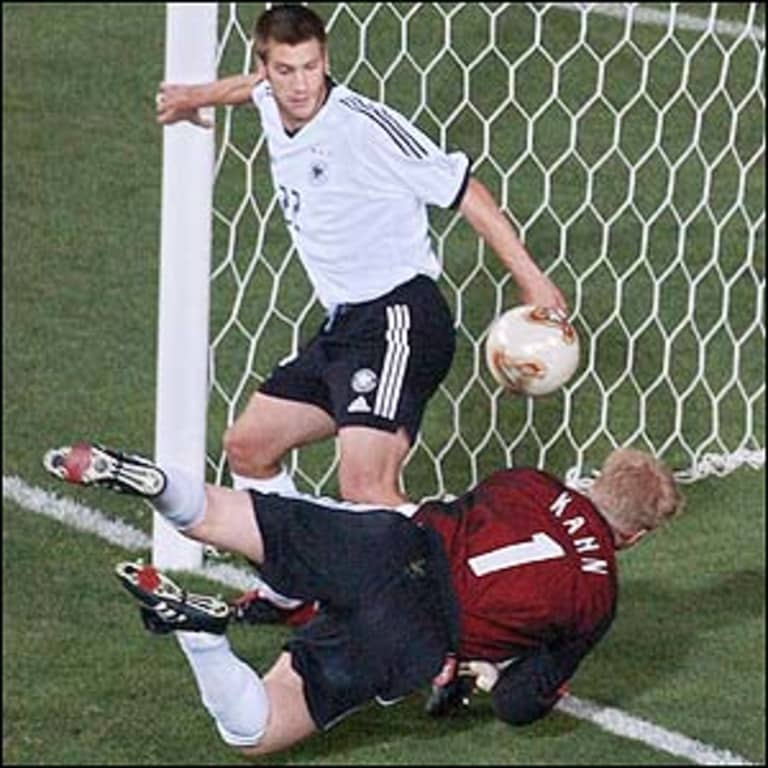
“As the ball is coming in, I took a chance and gambled,” Berhalter remembers vividly. “I went away from the direction of the ball, hoping it would get deflected it and it did. I reached, and volleyed it… From my perspective, it went under Oliver Kahn and hit Torsten Frings in the hand. He had his hand down, it was going in and he prevented it from going in with his hand. It was a clear, clear hand ball.”
The U.S. continued to battle for the remaining 40 minutes, but never find a leveling question. The ripple effect had Frings’ hand ball been called: a penalty kick, a red card and playing against a 10-man German side surely would have been the momentum shift the Americans needed.
Germany would go on to eliminate South Korea, 1-0, in the semi-final before falling to champion Brazil in the Final. Having beaten the Koreans 2-1 earlier in the year, the question of ‘What if?’ still lingers around the 2002 USMNT had the hand ball been called.
“Without a doubt, I think we've all talked about it,” Wolff says. “The question of 'What if?' has always been thrown around. There's no doubt about it: it is a hand ball, it is a red card, it is a penalty kick. That would swing plays, decisions, whatever it may be. It could've swung thing in our favor and it would've been very much deserved.”
Hejduk agrees: “We still talk about 'What if?' It was 1-0 at that point. It would've been 1-1, a red card for Frings. The 'What if?' will always be there. Unfortunately that happens. You can say it, but you can't live by it.”
Though it would've been a goal of a lifetime for Berhalter, the Crew boss holds no anger at the moment that could've changed the USMNT's fortunes against Germany.
“It's unfortunate that it wasn't called, but that's soccer," he says. "Referees make mistakes, they're human. I think at that moment, it would've given us the lift we needed. We were certainly more fit than them, I think if we got a goal we'd be right in it.”
*
Despite the sting of losing to Germany and thoughts of “What might have been?”, the USMNT exited the 2002 FIFA World Cup with its head held high having played its best match against the tournament’s eventual runner-up.
“After that tournament, we were bummed, but we knew that we accomplished something really special,” Hejduk says. “There was still a positive vibe after that game. We took it to the Germans. We gave them everything they could take. They were one of the best teams in the world at that point.
“We were competing against the best, and in some cases, out-competing the best.”
Wolff agrees, “It's disappointing, but you can't take away what we put into that tournament. It was unfortunate that we didn't get the call and it didn't go our way in that instance. Again, what we put together in that game and in that tournament opened people's eyes. We're still building upon it today.”
Following a disappointing showing at the 1998 tournament in France, the Americans’ showing in Korea-Japan helped re-establish an up-and-coming force in world soccer. A convincing win over Portugal, a “Dos a Cero” on the soccer’s biggest stage and a near upset of Germany made the rest of the world take notice of the Stars and Stripes.
“It gave us confidence and we showed the world that we weren't that far away,” Hejduk reflects. “As of 1998, we were really far away. Four years later, we're competing with the best and out-playing them in some instances.”
The USMNT’s performance in 2002 laid the groundwork for the nation’s future success in soccer. In the coming years, the U.S. would capture CONCACAF Gold Cups in 2005, 2007, 2009 and 2013 and also finish runner-up to Brazil in the 2009 FIFA Confederations’ Cup. Each of those team’s contained holdovers from the 2002 side’s run at the World Cup.
“That tournament, we somewhat arrived,” Hejduk says. “We've still got a ton of work to do. But up until that point, there wasn't a ton of hope [for U.S. Soccer]. In 1994, we did well. We were expected to do well in 1998 and bombed. But 2002 comes and BAM! We could've very easily been in the semifinal of the World Cup. I think that gave us -- as a nation -- confidence. The world really started noticing us.”
Adds Berhalter: “We raised the expectations. Coming off 1998 being disappointing and the world saying, 'This country is back.' It showed this country can perform in big events.”
For Berhalter, Wolff and Hejduk, it’s the team chemistry that was built by Arena and his staff that the players involved in the USMNT’s World Cup run remember most fondly.
“It was everyone at the right time,” Berhalter says. “The veteran guys were 100% in it for the team, whether they were playing or not. I think of Carlos Llamosa, Earnie Stewart, Jeff Agoos and Cobi Jones: those guys were in it. The middle group of guys were entering the peaks of their career like Frankie, Eddie Pope, Claudio [Reyna], myself, Brian McBride and Eddie Lewis. We had younger guys who were phenomenal. Beasley, [John] O'Brien, Donovan and Josh Wolff. It was a great group of guys."
With the best finish in the Modern Era of U.S. Soccer, the 2002 World Cup team cemented a legacy that remains unmatched. Raising the profile of American soccer, sparking a passion Stateside and making the world take notice as underdogs, the 2002 U.S. personified the American spirit in sports, say Wolff.
“That team embraced everything that U.S. Soccer and American sport is about, and should be about. It was about the team, coming together, believing and supporting one another.”
He continues: “The players had the hunger and the commitment to really dig in.
“Whether your number was called or not, this was about the team.”
